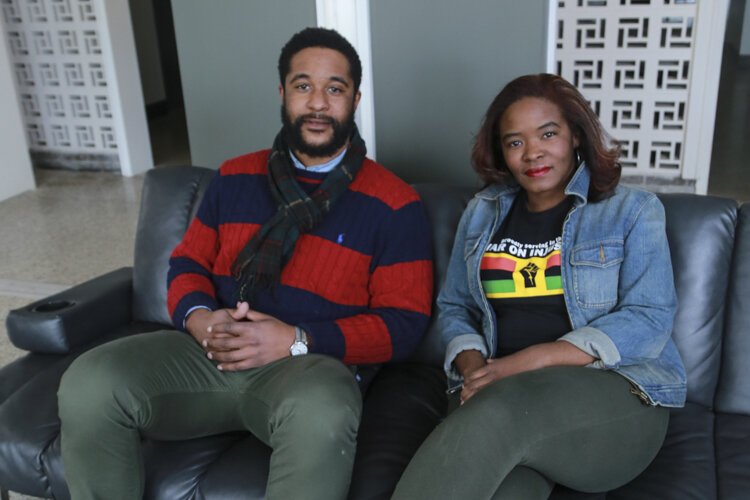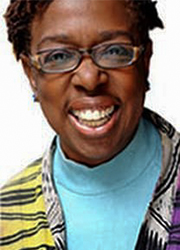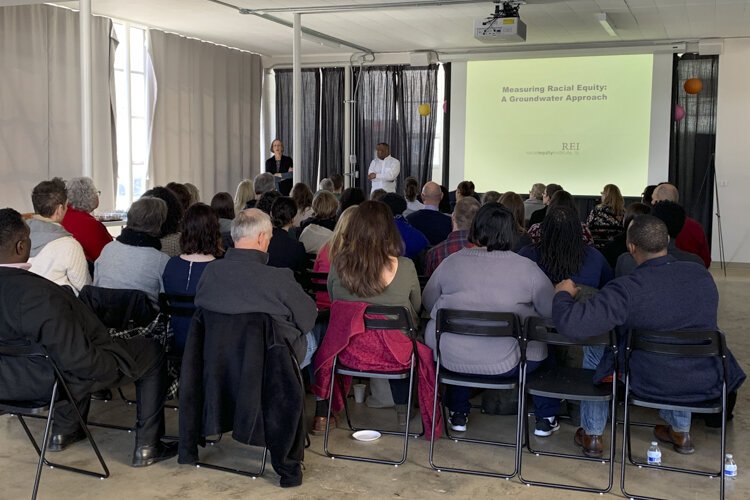Racial equity trainings aim to build awareness about structural racism
On the surface, it was simply business as usual. A patient has knee surgery and goes home with instructions and a follow up. But to J. David Heller, CEO of the NRP group, a multifamily housing developer in Cleveland, the routine discharge raised questions. He noted how the patient’s experience differed from his mother’s – after her knee surgery, she was discharged to in-patient rehabilitation.
Heller's mother is white and well-to-do. The family friend Is African-American. Heller asked himself: was racism was a factor behind the differences in treatment?
"To me, it was institutional racism," he says. "You've got someone who is coming from a lower-class of our society, and they immediately treat them different."
 Evelyn Burnett and Mordecai CargillHeller says he wouldn't have noticed the contrast, much less asked the questions, before participating in the training from the Racial Equity Institute, LLC, or REI.
Evelyn Burnett and Mordecai CargillHeller says he wouldn't have noticed the contrast, much less asked the questions, before participating in the training from the Racial Equity Institute, LLC, or REI.
According to its website, REI is an alliance of trainers, organizers and leaders devoted to creating racially equitable organizations and systems. The group has been leading trainings on racial equity for three years, first under the auspices of Cleveland Neighborhood Progress and now through the Third Space Action Lab, a consultancy rooted in racial equity. More than 3,000 people from 700 organizations have attended the trainings, which are now offered monthly.
Third Space co-founder Evelyn Burnett says the point of the workshops is simple: to build awareness around racial equity and inequity. “I think that people don’t understand, they don’t respect racism,” she says. “I think it’s an uncomfortable conversation for all people, particularly white people. I think we do not have a common lexicon to talk about race and racism, which makes it impossible to do anything about it.”
REI is based in Greensboro, NC, where four African-American students sat-in at the segregated Woolworth's lunch counter in 1960. Their protest helped launch the civil rights movement that eventually overturned Jim Crow.
The REI workshops bear little, if any, resemblance to a typical diversity workshop. There are no instructions on creating a non-hostile workplace, or defining harassment. Like the sit-ins, the REI trainings are intense. The information presented challenges closely held beliefs about the nature of racism and progress against it.
Heller attended "Phase 1," a two-day workshop that dives into the depths of institutional racism. The Institute also presents "Groundwater," a half-day workshop on the same topic. Neither training emphasizes or deconstructs individual bigotry and bias. The focus is squarely on "a historical, cultural, and structural analysis of racism," the website says.
In plain terms, the analysis argues that "racial disparity persists in every system in this country, without exception." What differs, trainers say, are the terms used to describe the disparities. In education, for example, it's called the "achievement gap." In health care, it's called "health disparity." In juvenile justice, it's called "disproportionate minority contact. No matter the term, the reality is whites and blacks are the bookends, with whites at the top and blacks on the bottom.
The training also shows that socioeconomic status does not explain or eliminate racial disparities. For example, it quotes two studies: one shows a white male ex-felon with a high school diploma was more likely to get a job interview than a college educated African American male with no criminal record. The second shows how resumes with so-called black sounding names were more likely to be rejected than identical resumes with so-called white sounding names.
The last study was an eye-opener for Larry Oscar, a partner with Hahn Loeser & Parks. He learned about it when he attended the half-day "Phase 1" presentation. "In a society where we value merit-based judgements… it doesn’t look merit based when you don’t have close or similar results," he says.
Oscar heard about the training from his daughter. He belongs to the board of the Greater Cleveland Partnership and believes diversity and inclusion are essential business values. Nevertheless, the depth and breadth of inequity shocked him. "The half day was eye-opening in terms of the level of unequal results among employers and institutions.”
Heller has become an advocate for the trainings since he attended them. His company is sending employees to the trainings, which are now offered each month. “It made me more cognizant of racism that exists, and that’s it’s in our own hands to change the world one person at a time,” he says.
Unlike other workshops, trainings do not offer "action steps" or "next steps." Participants are responsible for building on the insights they've received. It's a difficult undertaking, says Jill Paulsen, interim CEO and executive director of Cuyahoga Arts and Culture. The agency distributes revenue from the cigarette tax to local arts organizations. All CAC staff members have taken one of the REI trainings – even though the arts were not mentioned in examples of institutional racism.
But Paulsen says the omission is not reflective of reality, especially when it comes to funding. Nationally about 6 percent of arts funding goes to minority organizations, according to an article in Inside Philanthropy. Paulsen says sometimes arts organizations can get in a “bubble, and not realize how they are connected to this community.”
“Arts funding goes to – no surprise – majority arts institutions and white artists,” Paulsen says, quoting a 2017 report entitled “Not Just Money.” “Some of the data shows it's gotten worse in recent years. We have institutions that, we’re just operating with implicit bias.”
Cuyahoga Arts and Culture challenges that bias by paying for its grantees to attend the REI workshops. Since the scholarships began in 2018, 282 people have participated, Paulsen says.
Paulsen says she's seen the effect among member organizations. She cites Contemporary Youth Orchestra, which is in residence at Cuyahoga Community College’s Metro campus. "(CYO) did a presentation to our board that talked about how they're shifting their partners. They're having a much more intentional focus on who is participating in the program, how they're getting youth of color."
Paulsen says CAC evaluations now ask whether grantees attended REI, or another racial equity program, and how organizations are using what they've learned.
"I'm not saying it's easy to make change, but I think we're doing a better job differentiating between feeling good about understanding the structures of racism, and saying 'how do we dismantle them in our own agencies?'"
CLE Means We: Calls to Action
Three things you can do to advance equity and inclusion after reading this article:
1. Attend a Racial Equity Institute (REI) training.
2. Learn more about racial equity issues using these free resources.
3. Encourage your organization's leadership, coworkers and people you know to attend a training.
This article is part of our "CLE Means We: Advancing Equity & Inclusion in Cleveland" dedicated series, presented in partnership with Jumpstart, Inc., Greater Cleveland Partnership/The Commission on Economic Inclusion, YWCA of Greater Cleveland, and the Fund for Our Economic Future.


